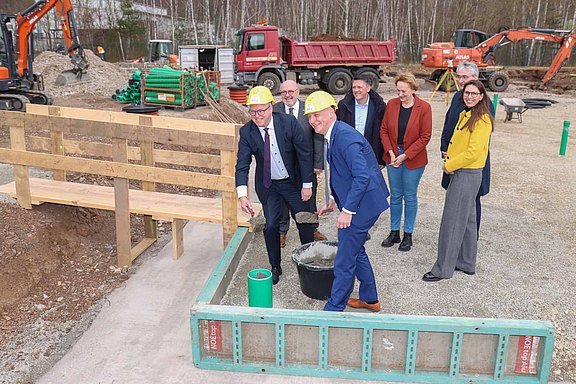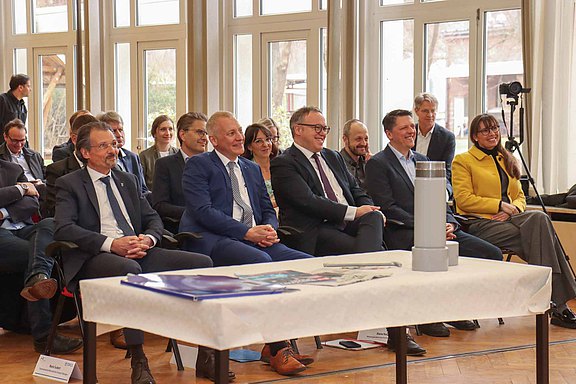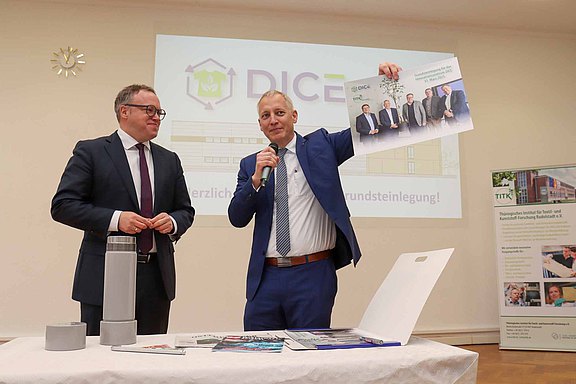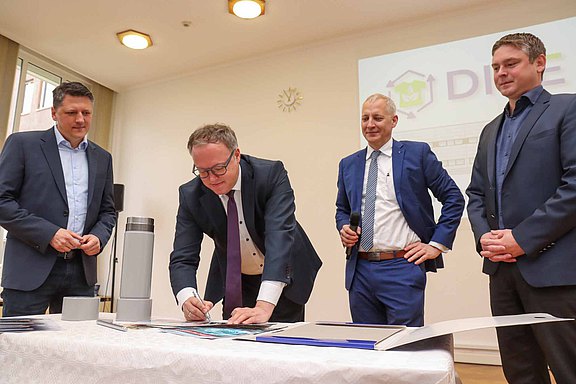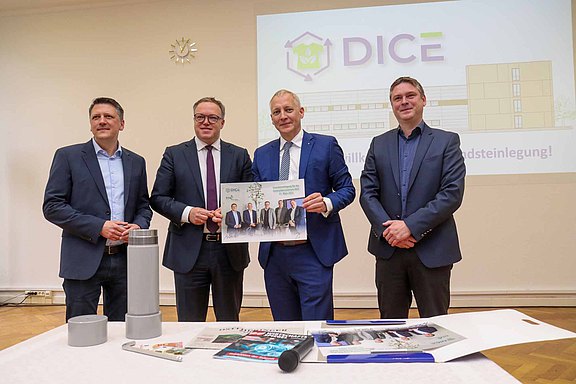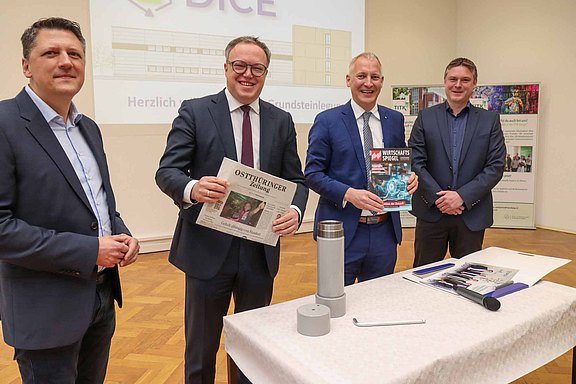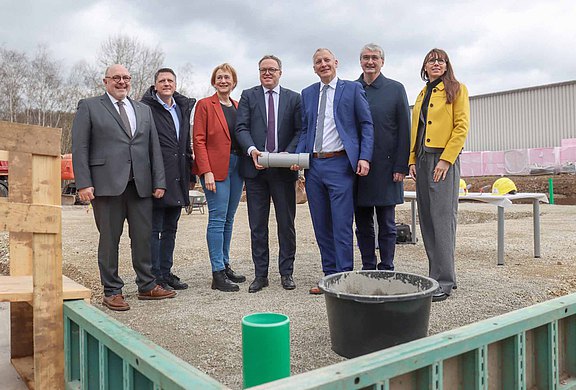This morning, Thuringia's Minister President Mario Voigt and TITK Director Benjamin Redlingshöfer laid the foundation stone for a new innovation center in Rudolstadt hand in hand and professionally with a construction helmet and trowel. Under the name “DICE - Demonstration and Innovation Center for Textile Circular Economy”, the innovation center will focus on the textile circular economy, among other things. At a cost of around 11.5 million euros, this is the largest single investment in the history of TITK to date.
In front of around 50 guests of honor from politics, business, research and science, Mario Voigt and Benjamin Redlingshöfer placed the steel time capsule in the concrete foundation. Inside: an East Thuringian newspaper, a business review, a set of cash and a photo of the Minister President's first visit to TITK - back in November 2023 when he was still the top candidate for the Thuringian CDU.
“The close networking between research institutions such as TITK and industry is the foundation for innovation in Thuringia. As a link between research and the market, TITK translates scientific findings directly into marketable solutions and products - practical, business-oriented and future-proof,” said the Minister President at the laying of the foundation stone. “The TITK combines many years of experience with a clear strategy for the future: innovation must be economically viable and sustainable.” According to Mario Voigt, the DICE is a true beacon project for sustainable textile recycling. “It stands for forward-looking circular economy in the textile sector - resource-conserving, practical and cross-sectoral.”
Goal: Industrially scalable processes
The task of the DICE is to research and test solutions for practical and holistic textile recycling. The focus is on the development of new, industrially scalable recycling processes, particularly for cellulose and polyester fibers. In this way, the TITK aims to make an important contribution to the transformation of the textile value chain. The timing is highly relevant: European legislation requires the mandatory take-back and recycling of used textiles from this year. At the same time, momentum in the field of the textile circular economy is growing rapidly worldwide. The recycling of mixed textiles in particular is a key challenge that the DICE will focus on intensively.
“By establishing this innovation and ultimately competence center, we will also initiate local, closed value chains with high technology standards,” says TITK Director Benjamin Redlingshöfer, looking ahead. “In this area, we need to invest massively in growth over the next few years, which will subsequently generate income to cover consumer spending.” According to Redlingshöfer, however, this requires encouraging framework conditions, for example by reducing bureaucratic hurdles for companies, ensuring competitive energy prices and intensifying the promotion of research and innovation.
A modern, four-storey laboratory and office building as well as a pilot plant and test hall with a floor area of around 1,000 square meters are now being built on the TITK's own property as a structural shell for the DICE. The new building will house a biology laboratory and a pulp laboratory, among other things. The test hall will focus on two main lines: Polyester recycling and cotton recycling.
Already 63 renowned cooperation partners
The research and testing of alternative cellulose suppliers is also a focus of DICE's work. For more than 30 years, the TITK has been dedicated to sustainable cellulose-based textile fibers. These lyocell fibers have now been significantly further developed: they no longer use pulp from wood, but from fast-growing hemp, for example. “This means that the CO2 footprint can be significantly reduced once again compared to wood-based cellulose. At the same time, water consumption is drastically reduced compared to cotton production,” emphasizes Redlingshöfer.
With a total investment of around 11.5 million euros, including technical equipment, the DICE is TITK's largest single project to date. The Free State of Thuringia is supporting the construction with a total of 8 million euros from GRW and RTI funding. Minister President Voigt refers here to the state government's targeted support for future research, which is a “clear commitment to strengthening innovation and sustainability in Thuringia.”
The shell of the building should be ready for occupancy this year. 63 partners - including well-known companies such as Adidas, Vaude, Continental and Head - have already confirmed their cooperation with DICE. Numerous research institutions, associations and networks are also supporting the project.
